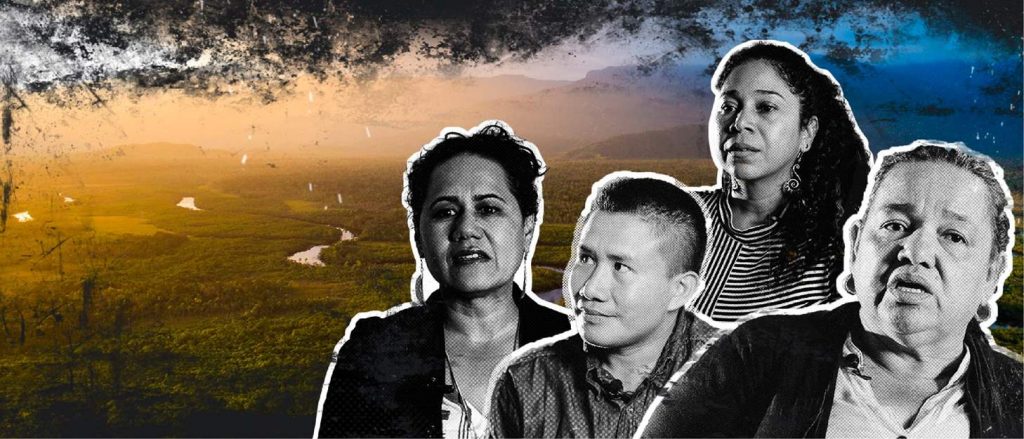This month, we update you on developments in Colombia, Venezuela, Brazil, Chile, Peru, Ecuador and Bolivia. There is a new Urgent Action on behalf of a Colombian journalist under threat. In Venezuela, attacks continue against Human Rights Defenders. In Brazil, mass killings of black residents continue in Rio de Janeiro and there is concern about government policies to strip indigenous communities of their autonomy. An imminent visit by the President of Chile provides an opportunity to lobby the British Government to press for justice for those killed and injured in protests that were repressed by the authorities. Indigenous communities in Peru are under threat from illegal land grabbers. Ecuador has held its first National Day against Sexual Violence in Schools. An independent investigation has found that the recent interim government in Bolivia persecuted opponents with systematic torture and summary executions by security forces.
COLOMBIA

Amnesty International has issued a new Urgent Action on behalf of the journalist Jose Alberto Tejeda. Since 28 April, Tejeda has faced more than 14 security incidents including surveillance by unidentified men and a security forces official who threatened to kill him. His work has been crucial in denouncing human rights violations and crimes under international law by the security forces during the Colombian National Strike in the city of Cali. We urge the National Protection Unit of the Ministry of Interior to provide him with appropriate protection measures with his agreement.
Colombia’s Prosecutor General’s Office is seeking to indict General Mario Montoya for his role in the murders of civilians who were then disguised as guerrillas killed in combat. Colombia’s Special Jurisdiction for Peace has found that at least 6,402 civilians were murdered by the army between 2002 and 2008 in these circumstances, known as ‘false positives’. The General is the highest-ranking officer to be directly implicated in the killings.
Peace Brigades International reports on anti-personnel mines located near the indigenous community of Chageradó in the department of Antioquia. ‘The territory of the municipality of Murindó, and especially its two indigenous reservations, is now deeply affected by the installation of land mines by different armed actors. The mines violate the right to life and mobility of community members, forcing them to confine themselves to the resguardos, so as not to put their own lives at risk.’ According to the Red Cross, 352 people were killed or wounded by landmines in Colombia in 2019, while Insight Crime reports that the use of landmines is increasing as land dedicated to coca cultivation increases.
The Internal Displacement Monitoring Centre records that 1,440 people in Chocó fled their homes and land in August to escape the fighting between the National Liberation Army (ELN) and successor paramilitaries. A further 2,600 people fled their homes and land in the south of Bolivar department to escape fighting between armed groups. 106,000 Colombians were forcibly driven off their land and homes in 2020.
VENEZUELA
Penal Forum NGO confirmed the death of political prisoner Gabriel Medina Díaz, one of the political prisoners of the Nicolás Maduro administration, who died after suffering a respiratory arrest since he did not have the medical attention he needed, according to the vice president of the organisation, Gonzalo Himiob.
Attacks against human rights defenders in Venezuela continue. During July, the Center for Defenders and Justice registered around 140 attacks against human rights defenders. In its report, the organization has denounced that the State has hardened the criminalization of defense groups.
The Inter American Commission on Human Rights (IACHR) has demanded the guarantee of the rights of human rights organisations. The IACHR warned that forcing NGOs to disclose information about their donors and beneficiaries can promote the stigmatisation of these organisations, due to the context surrounding the imposition of the new registration measures by Nicolas Maduro’s government.
Venezuela’s Attorney General has rejected an International Criminal Court (ICC) Report Finding Evidence of Human Rights Violations. The ICC report found that there was a reasonable basis to believe that “civil authorities, members of the Armed Forces and pro-government individuals have committed crimes against humanity” in Venezuela, at least since April 2017. [Read more…]

